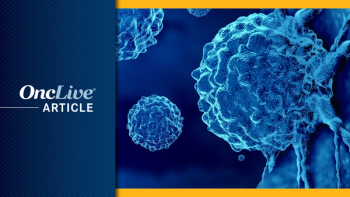
- August 2012
- Volume 6
- Issue 8
Vismodegib Effective Against Skin Cancer in Patients With Basal-Cell Nevus Syndrome
The oral hedgehog pathway inhibitor vismodegib is effective for both the prevention and treatment of basal-cell carcinoma in patients with the rare disorder known as basal-cell nevus syndrome.
Jean Y. Tang, MD, PhD
The oral hedgehog pathway inhibitor vismodegib (Erivedge) is effective for both the prevention and treatment of basal-cell carcinoma in patients with the rare disorder known as basal-cell nevus syndrome, according to a recent study.
“Our results illustrate the potential for using molecularly targeted drugs for cancer chemoprevention,” Jean Y. Tang, MD, PhD, an assistant professor of Dermatology at Stanford University School of Medicine in Palo Alto, California, and colleagues elsewhere wrote.
For the study, 41 patients were randomized in a 2:1 ratio to receive either vismodegib at a dose of 150 mg per day or placebo for 18 months. All of them had a clinical diagnosis of basal-cell nevus syndrome on the basis of at least two major criteria, with a total of at least 10 surgically eligible basal-cell carcinomas present at the time of enrollment.
While basal-cell nevus syndrome is rare, it may cause hundreds of thousands of basal-cell carcinomas in a single patient and markedly reduce quality of life because of the need for frequent procedures that promote scarring, the authors noted. No drug treatment has proven consistently effective, and surgery has been the sole treatment option. Patients with basal-cell nevus syndrome inherit a single defective copy of the tumor-suppressive gene encoding PTCH1, which normally acts as a primary inhibitor of the hedgehog signaling pathway.
Results of the phase II study showed that vismodegib decreased the mean annual rate of new, surgically eligible basal-cell carcinomas compared with placebo (2 vs 29; P <.001).
The agent also reduced the size of existing surgically eligible basal-cell carcinomas, expressed as the percentage change from baseline in the sum of the longest diameters (mean, -65% vs -11% with placebo; P = .003). Clinical regression of virtually all basal-cell carcinomas was documented in some patients.
Palmar and plantar pits also disappeared during vismodegib treatment.
Most tumors re-grew once the drug was withdrawn.
Grade 1 or 2 adverse events involving loss of taste, muscle cramps, hair loss, and weight loss were common. Overall, 54% of patients dropped out of the trial because of treatment-related side effects.
Tang et al said that they cannot exclude “the possibility that all clinically regressed tumors harbor residual groups of tumor cells and that these account for the regrowth of tumors after stopping vismodegib or the possibility that a small number of morphologically normal (histologically unrecognizable) dormant tumor cells remain after examination of random histologic sections.”
Vismodegib was approved earlier this year for the treatment of locally advanced and metastatic basalcell carcinomas in adults who are not candidates for surgery or radiation.
Tang JY, Mackay-Wiggan JM, Aszterbaum M, et al. Inhibiting the hedgehog pathway in patients with basal-cell nevus syndrome. N Engl J Med. 2012;366(23):2180-2188.
Articles in this issue
over 13 years ago
Breast Cancer and Its Treatment May Not Cause Long-Term Fatigueover 13 years ago
Trials in Progress Poster Sessionover 13 years ago
Anemia Linked to Functional Disability in Older Patients With Cancerover 13 years ago
Lower-Income Patients Less Likely to Participate in Clinical Trialsover 13 years ago
Colonoscopy Linked With Lower Risk of Colorectal Cancer Mortality


































